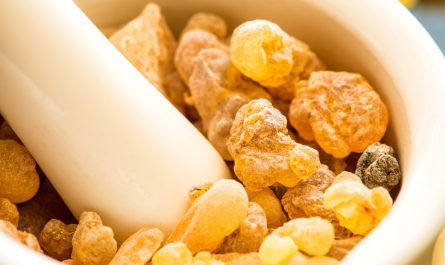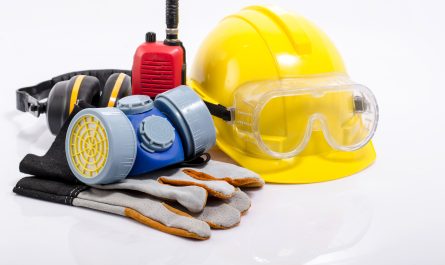Household Cleaners: Essential Products for a Clean Home
Keeping your home clean and free of dirt and germs is important for health and well-being. Over the years, advances in chemistry and technology have led to the development of effective yet safe household cleaners that help make housework easier. In this article, we will look at the various types of cleaners available and how they can be used effectively around the home.
Introduction to Common Household Cleaners
Detergents, disinfectants, all-purpose cleaners – our homes have cabinets full of different cleaners for various cleaning tasks. The most commonly used household cleaners include:
All-Purpose Cleaners
All-purpose cleaners are a jack-of-all-trades when it comes to household cleaning. Formulated to remove dirt, grease, and grime from both hard and soft surfaces around the home, all-purpose cleaners contain surfactants that break the bond between soil and surfaces. They are safe to use on floors, counters, appliances, windows and more. Look for fragrance-free, non-toxic options for a healthier clean.
Disinfectants
Disinfectants help eliminate germs, viruses and bacteria from surfaces. Regular disinfecting helps prevent the spread of illness and keeps your home sanitary. Opt for spray disinfectants containing bleach or hydrogen peroxide to effectively kill >99% of common pathogens. Always follow label instructions and ventilate the area after use.
Glass and Window Cleaners
Formulated to safely and effectively remove dirt, grime, streaks and smears from glass surfaces like windows, mirrors and eyeglasses. Ammonia-free cleaners are safer for painted surfaces while vinegar-based cleaners are more environmentally-friendly. Look for cleaners with squeegee triggers for easy streak-free cleaning.
Kitchen Cleaners
The kitchen sees a lot of dirt due to food preparation. Oven cleaners break down baked-on grease and food residue in ovens. Disinfectant cleaners are suitable for counters, sinks, appliances and floors. Specialized cleaners help remove tough stains from things like coffee makers, microwaves and stainless steel appliances.
Bathroom Cleaners
From mildew-resistant tile cleaners and tub and shower cleaners to toilet cleaners and granite/stone cleaners – the bathroom requires specialized cleaners. Limescale removers help decalcify faucets and showerheads. Disinfectant spray cleaners and wipes keep surfaces germ-free.
Floor Cleaners
Hard floor cleaners deep clean, degrease and protect floors while leaving behind a clean, fresh scent. Wood floor cleaners are specially formulated to avoid damage to sealed or finished wood. Carpet cleaners gently remove ground-in dirt without over-sudsing.
Furniture and Upholstery Cleaners
Keep furniture looking its best for longer with cleaners made for leather, fabric and other materials. Spot cleaners are suitable for quick cleanups of minor spills and stains. Upholstery cleaners deep clean larger areas like couches and chairs.
Techniques for Effective Cleaning
Having the right cleaners is only half the story – using them properly is key. Here are some tips for effective cleaning:
– Surface Preparation: Sweep, vacuum or wipe away loose dirt before applying cleaner to a surface. This allows the cleaner to work on stubborn soils.
– Test Cleaners in Inconspicuous Areas: Test any strong cleaners in hidden areas first to check for discoloration or damage to the surface.
– Read and Follow Label Instructions: Pay close attention to warnings, manufacturer directions for safe and proper usage.
– Use Proper Tools and Techniques: Soft cloths, microfiber towels, sponges and brushes help with applying cleaner, scrubbing and buffing away soils.
– Ventilate Areas: Open windows when using volatile cleaners containing ammonia or other harsh chemicals to avoid inhaling fumes.
– Care for Surfaces Regularly: Frequent light cleaning prevents buildup of dirt and is less taxing than periodic deep cleaning.
– Launder Microfiber cloths Regularly: Wash cleaning cloths frequently to avoid spreading germs from one cleaning task to another.
– Store Cleaners Properly: Keep chemicals out of reach of children and pets. Follow safety instructions for storage, mixing and dispensing cleaners.
Making Your Own Natural Cleaners
While store-bought cleaners work well, you can save money and reduce packaging waste by making your own cleaners at home using basic ingredients. Natural DIY cleaners are easy on the environment and health. Here are a few simple recipes to try:
All-Purpose Cleaner – Mix 1/2 cup white vinegar with 1/2 cup water in a spray bottle. The acetic acid in vinegar cuts through grease and grime.
Glass Cleaner – Combine 2 cups distilled white vinegar, 1/4 cup rubbing alcohol and 1 cup water. Wipe with newspaper for streak-free shine.
Wood Cleaner – Mix equal parts white vinegar and olive oil. The oil nourishes wood surfaces while vinegar removes dirt.
Tub & Tile Cleaner – Add 1/2 cup baking soda and 10-15 drops lemon essential oil to a spray bottle filled with water. Baking soda is a great scouring agent.
Furniture Polish – Mix 1 tbsp. lemon juice with 1/4 cup olive oil. Wipe onto furniture and buff dry for a natural polish.
The kitchen and bathroom produce all kinds of nasty smells. Place an open box of baking soda in the trash can, refrigerator or anywhere odors need neutralizing. Baking soda is an affordable natural deodorizer.
Household cleaners when used judiciously help us live in clean, hygienic surroundings. With the right products and techniques cleaning becomes less of a chore. Always practice safe chemical handling and storage. With a little care and effort, your home can be kept fresh and clean naturally.



